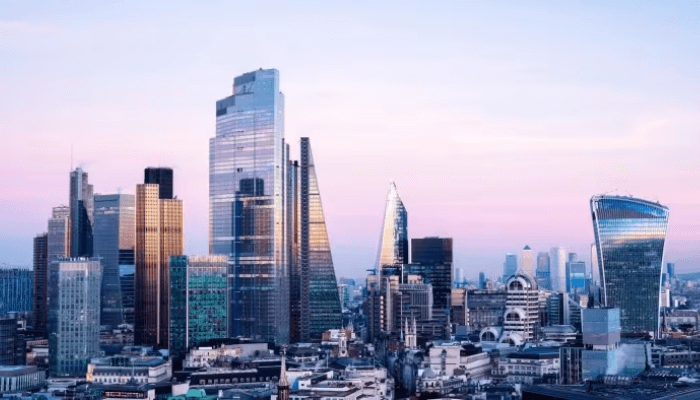Unlocking growth through private capital
The Covid‑19 pandemic exposed what many economists had long warned against: that economies overly dependent on government spending and agitation of public support are vulnerable. Global supply chains were disrupted, oil demand slumped, and fiscal reserves were stressed. For Nigeria, this crisis clearly reinforced one thing: sustainable recovery and long‑term growth must increasingly depend on private and foreign capital, not just state budgets and ad hoc interventions.
Recent data suggest Nigeria is on a modest upward trajectory. In Q1 ‘2025, the Nigerian economy expanded by 3.13 percent year‑on‑year, up from 2.27 percent in the same period a year before.
This growth was driven largely by the service sector, which contributed about 57.15 percent to aggregate GDP. These numbers reflect both promise and frustration – growth is happening, but not at the scale many believe the country’s potential warrants.
Foreign capital flows show mixed signals. Portfolio investment inflows have improved sharply in recent periods in response to reforms that opened up foreign exchange (FX) markets and allowed the naira to more closely reflect market realities.
Meanwhile, foreign direct investment (FDI) remains weak relative to what is needed: in 2024, FDI fell significantly to about $1.08 billion, down roughly 42 percent from the previous year. Over the decade 2013–2023, net FDI averaged just 0.5 percent of GDP, well below levels in peer economies.
In contrast, Nigeria’s external finances have recently improved. In 2024, the country recorded a balance of payments surplus of about $6.83 billion, a turnaround from deficits in previous years, encouraged by rising non‑oil exports, lower imports, stronger remittances, and portfolio inflows.
Gross external reserves hit about $40.19 billion by the end of 2024.
These shifts suggest that investor confidence is returning, but the nature of the capital flowing remains skewed toward short‑term, yield‑seeking funds rather than the stable, long‑term investment that builds infrastructure, manufacturing, and broadly shared prosperity.
Nigeria’s recent economic history offers a cautionary tale. After the 2014 oil price crash, from over $100/barrel to around $40, growth languished. The economy has struggled to rebound to strong growth, averaging low single digits. The inability to generate private and foreign investment at scale has constrained the country’s ability to fill infrastructural deficits, expand manufacturing, and diversify away from oil.
Government spending as a share of GDP remains moderate. Many economists estimate government expenditure is around 12 to 13 percent of GDP, not high enough to shoulder all the burdens of investment in roads, power, health, education and other essentials. Without more private capital, the gap between public needs and public resources will only widen.
Moreover, policy and regulatory frameworks have often acted as brakes, rather than accelerators, of private investment. The Central Bank of Nigeria’s past fixation on defending the naira through multiple exchange rates, tight capital controls, and restrictions on capital movement discouraged long‑term foreign investors. Frequent fluctuations in regulatory posture, weak legal enforcement, and unclear frameworks reduce investor certainty. These deficiencies continue to hamper Nigeria’s ability to attract stable foreign direct and patient capital.
However, there are reasons for optimism. Reforms beginning in 2023 under President Bola Tinubu have aimed at FX unification, subsidy removal, increased transparency, and liberalisation of foreign exchange policy. These have helped prompt portfolio inflows, as between January and June 2024, foreign capital inflows more than doubled to $6 billion from $2.16 billion in the same period in 2023.
Also, external and non‑oil sectors are showing stronger performance: non‑oil exports grew by 24.6 percent, and gas exports by 48.3 percent in 2024. Trends point to growing opportunities in export diversification and linkages beyond oil.
Pension funds, diaspora bonds, private equity, and non‑sovereign bond issuance are areas with substantial latent potential.
To unlock the growth potential that private capital offers, Nigeria needs to adopt the philosophy below, not as a slogan, but as a governing principle. That means much more than occasional policy tweaks; it demands consistency, predictability, and structural alignment, such as:
Stable regulatory and legal frameworks. Investors, domestic and foreign alike, seek legal certainty: enforceable contracts, property rights, stable taxation, and dispute resolution. When laws change easily, or institutions appear weak or corrupt, risk premiums rise, discouraging long-term investment.
Efficient and transparent foreign exchange regime: The FX market reforms so far are welcome. To build on them, Nigeria must eliminate distortions, allow market‑determined exchange rates, and ensure timely settlement for foreign investors. Without clarity in FX policy, it is difficult for foreign capital to commit to long-term projects with confidence.
Mobilise domestic capital pools: Pension funds and insurance funds, along with domestic institutional investors, must be encouraged to allocate more to infrastructure, manufacturing, and productive sectors. That means designing instruments that deliver adequate returns, reducing inflation risk, and ensuring stable macroeconomic policies so that yields are not eaten up by high interest rates or inflation.
Align private sector participation in economic diversification:
Diversification away from oil into agriculture, manufacturing, services, technology, creative industries, tourism and export‑oriented sectors must involve private capital as the lead. Public investment should focus on enabling infrastructure (roads, power, and ports), regulation, and human capital, areas that crowd in private investment and produce spillovers.
In moving toward a private‑capital‑driven economy, there are risks to manage: Macroeconomic instability, especially inflation and interest rates, can quickly render investments unprofitable. Policy reversals or regulatory unpredictability undermine confidence. And also, weak institutional capacity at the state and local levels can stall projects, create cost overruns, or fail to ensure maintenance. Over-reliance on short‑term portfolio flows can be volatile and subject to rapid outflows if global conditions shift.
Nigeria’s recovery and growth going forward will depend heavily on transforming how capital is drawn in, deployed and sustained. The private sector cannot be treated as a stopgap or a funding gap filler; it must assume its rightful role as an engine of growth. This demands not only incentivising private investment but also embedding a philosophy of private capital as the foundation of economic policy: clear, stable, attractive, and mutually reinforcing with public functions.

